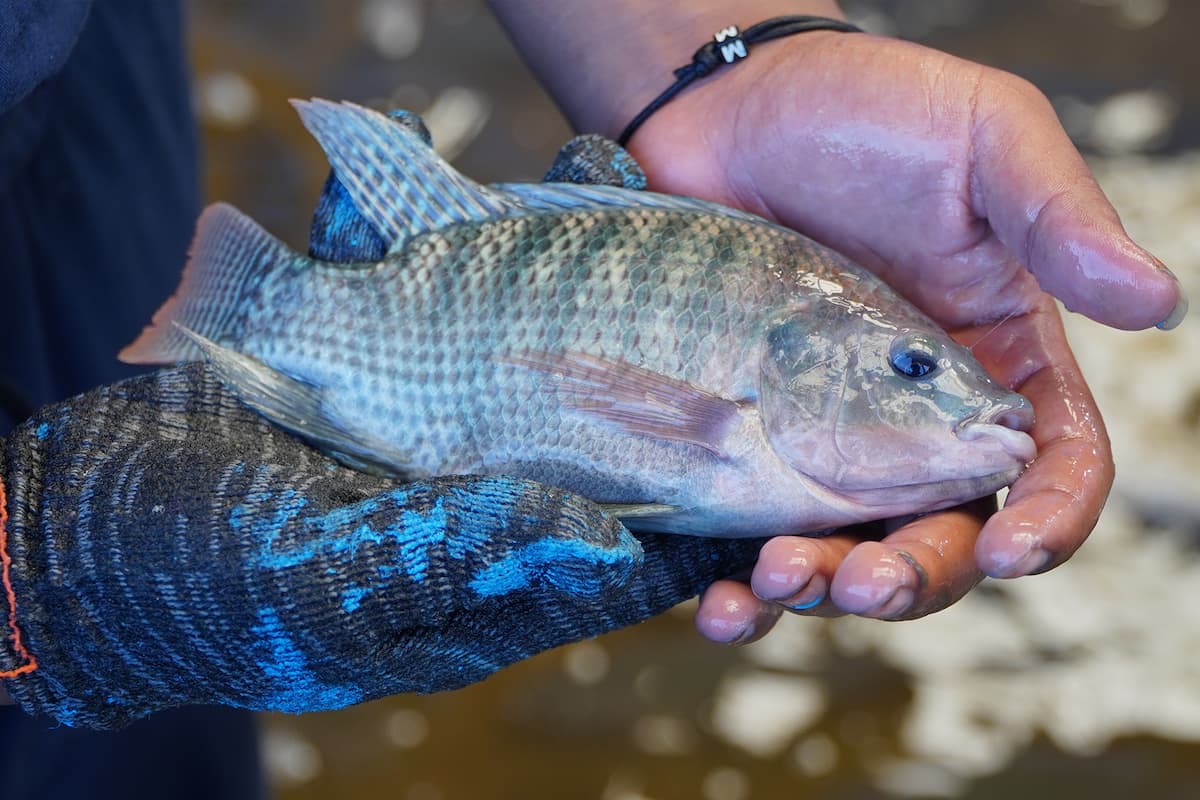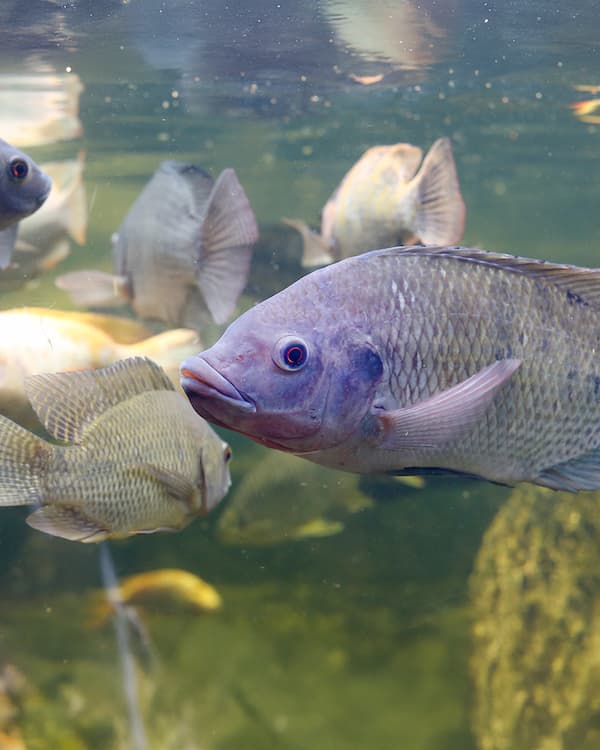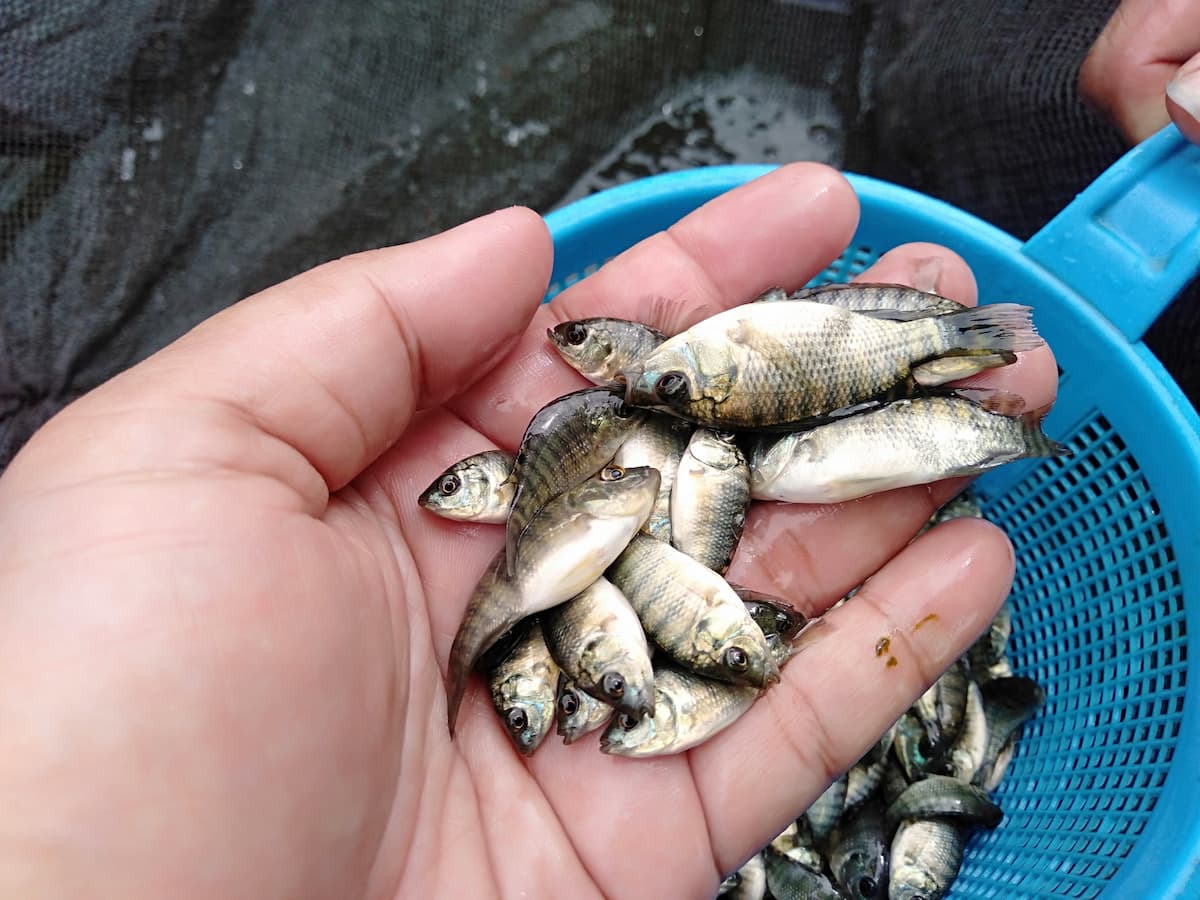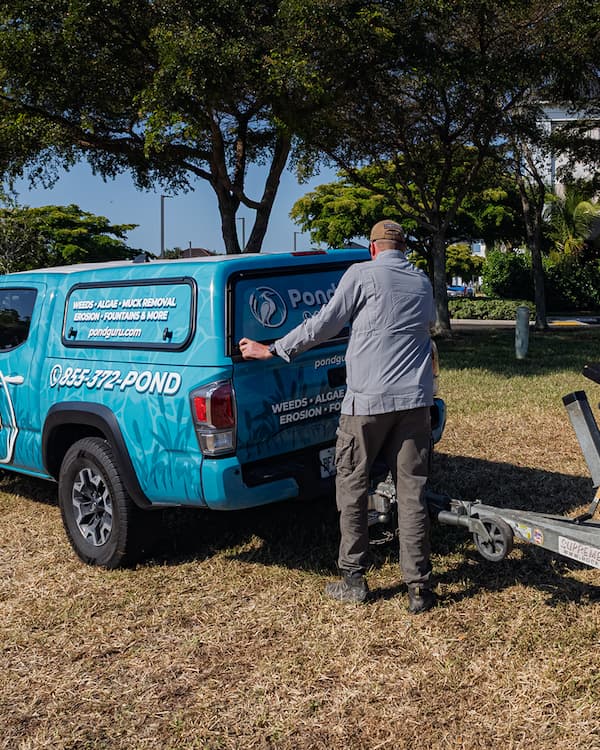Tilapia is one of the most talked-about fish species in Florida’s aquatic environments—especially when it comes to pond wildlife management. Known for their fast reproduction and adaptability, tilapia can be both a useful tool in some settings and a serious threat in others. So the question remains: is tilapia invasive in Florida?

Whether you’re a private landowner, HOA board member, golf course superintendent, or a property manager, understanding the risks of invasive fish in lakes and pondsis key to maintaining abalanced ecosystem. In this guide, we’ll explain why tilapia are considered invasive, how they impact aquatic systems, and what to consider if you’re thinking about stocking tilapia in your pond.
Yes—tilapia are considered invasive in Florida. Originally introduced from Africa and the Middle East for aquaculture purposes, several species of tilapia, including blue tilapia (Oreochromis aureus), now thrive in Florida’s warm freshwater habitats.
Tilapia are highly adaptable. They:
Their aggressive nesting behavior and appetite for aquatic vegetation allow them to disrupt native ecosystems, making tilapia a genuine concern for pond wildlife managementin Florida.
Before spotting the signs, it’s important to understand why oxygen levels might drop in the first place. Here are some of the most common culprits:
Organic matter build-up, such as decaying leaves or waste
Many private pond owners wonder whether tilapia in a pondcan be beneficial. In some cases, tilapia are stocked intentionally to help control algaeand aquatic weeds, as they are known to feed on filamentous algaeand detritus.
However, the downsides can be significant:
For most pond owners, the risks of invasive fish in lakeslike tilapia outweigh the short-term benefits. That’s why professional oversight is critical.

Fishing for tilapiais legal in Florida and is one method some landowners use to control their numbers. Tilapia can be caught using:
Knowing how to catch tilapiais one thing, but keeping their population under control is another. Because of their rapid breeding cycle, fishing alone is rarely effective long term. Sustainable pond wildlife managementstrategies should include a combination of removal, predator fish stocking, and possible habitat alterations.

Introducing or allowing invasive fish in pondscan have lasting ecological consequences. These include:
For communities and golf courses, these changes can impact aesthetics, increase maintenance costs, and harm recreational fishing. That’s why professional intervention is often needed.
Fish stockingis a vital part of managing any private pond or small lake. In Florida, it’s tempting to consider tilapia for algae control or as a forage fish for bass—but doing so without a comprehensive plan can backfire.
Before introducing tilapia, ask yourself:
At Pond Guru, we specialize in strategic fish stocking and offer science-based evaluations to determine if tilapia—or any other species—are appropriate for your aquatic environment.
Dealing with duckweed in a pond is not a one-time event. If you’re struggling with repeated outbreaks or want a professional, eco-friendly solution, contact Pond Guru. We offer expert site visits, personalized pond treatment plans, and long-term duckweed control strategies.
If you’re unsure whether you’re dealing with an invasive fish problem or considering stocking your pond with tilapia, we’re here to help. Pond Guru’s expert techniciansoffer site visits to assess water quality, fish populations, and ecological balance.
We provide tailored solutions for:
Whether you manage a private pond, a large HOA waterway, or a golf course lake, our team can help ensure your water stays healthy, clear, and beautiful.

Yes, tilapia are considered invasive and can disrupt native aquatic ecosystems.
While tilapia can help with algae control, their rapid reproduction and habitat disturbance make them risky without professional oversight.
You can use bread balls on a hook, cast nets, or bowfishing to remove them manually.
Invasive species can reduce oxygen levels, outcompete native fish, and degrade water quality.
Our team offers full-service pond wildlife management, including site assessments, fish population control, and long-term health plans.
fish, water, pond, pump, koi pond, plant, algae, water garden, waterfall, aquatic plant, drainage, debris, flood, garden, bacteria, filtration, koi, ecosystem, soil, lake, landscape, water quality, maintenance, fountain, inspection, construction, nutrient, beauty, oxygen, ph, lighting, garden pond, stormwater, stream, plumbing, gravel, aquascaping, aquatic ecosystem, maintenance services, renovation, water treatment, fish pond, sludge, nitrate, fish kill, aesthetics, hardscape, pond cleaning service near me, pond cleaners near me, koi pond cleaning near me, fish pond cleaning service, pond cleaning company, small pond cleaning service, fish pond cleaning, pond servicing, cleaning pond algae, clean up a pond, pond cleaning service, pond cleaning, koi pond cleaning, koi pond cleaning service, pond clean out, ice, leaf, matter, wetland, organic matter, tank, decomposition, chlorine, pressure, fresh water, ammonia, request, water maintenance, water filter, water clarity, tap water, animal, garden hose, aeration, wildlife, swimming pool, rain garden, cleaner, waste, clay, barley, garden design, hose, green